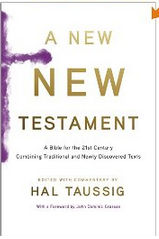The Problem of Genocide in the Old Testament
 Reprinted with permission from Baptist Bulletin Mar/Apr 2013. All rights reserved.
Reprinted with permission from Baptist Bulletin Mar/Apr 2013. All rights reserved.
Troubling headlines
Recent incidents of genocide (the systematic killing of ethnic or religious groups) and ethnic cleansing (the forced deportation of ethnic or religious groups):
- 1991 450,000 Palestinians expelled by Kuwait in retaliation for the PLO’s support of Saddam Hussein
- 1993 170,000 Croatians and non-Serbs murdered or deported by Serbian rebels led by Slobodan Miloševic
- 1999 800,000 Albanians flee their homes during the Kosovo War
- 1994 As many as 1,000,000 Tutsi killed by Hutus in the Rwandan genocide
- 2000 200,000 East Timorese killed or expelled from Indonesia after voting for independence in a 1999 referendum
- 2003 450,000 from various black ethnic groups killed and another 2 million expelled from the Darfur region of Sudan
- 2008 200,000 Karen and 120,000 other refugees displaced from their Burma (Myanmar) homes, fleeing to Thailand
- 2012 400,000 people displaced in dispute between Bodos and Bengali-speaking Muslims of Assam, India
Problem: How should a believer respond to accusations about genocide in the Old Testament? Does the Bible encourage genocide for religious purposes?
Discussion
Book Review - The Christian World of the Hobbit
I remember the first time I entered the world of Middle-earth. I was twelve or thirteen and noticed an interesting little yellow book on my mother’s shelf. I’m not entirely sure if she ever read it or not—as that kind of book was not what I remember her reading. But I asked if I could read it and eagerly dove in. At that age I don’t believe I was even aware there was a sequel to the book. But from the first few moments I was hooked.
Discussion
Scripture as Historical Source Documents
I must draw everybody’s attention to the new work by Candida Moss, entitled the Myth of Christian Persecution. I will reserve judgment on her work because I have not read it; however, I encourage everybody to read a short article where she summarizes her views on the matter here - http://www.huffingtonpost.com/candida-moss/the-myth-of-christian-persecution_b_2901880.html
Discussion
New Books Network
I found a website today that I can’t wait to immerse myself in. Maybe I am the only one who does a happy dance when I find a resource like this, but I’m ok with being a total book nerd.
If you love books and reading, you WILL check it out. http://newbooksnetwork.com/
Discussion
What is the "New Perspective on Paul"? A Basic Explanation (Part 1)
 Reprinted with permission.
Reprinted with permission.
Introduction
The influence of this movement is increasing within evangelicalism, and I believe many people are in the dark about it. The subject is important also because we tend to view Scripture through the lens of the Reformation instead of the other way round. Although the Reformers got the gospel right, their successors have sometimes appealed to them and not the Bible. At least the New Perspective on Paul (NPP), whatever its merits or demerits, has directed us back to the Bible again.
The so-called “New Perspective on Paul” would be better called “New Perspectives on Paul.” But in whatever variation, and whatever its problems, the New Perspective offers an important and robust challenge to traditional Reformation views of justification and Pauline theology. I should say that I do not dismiss everything the New Perspective has to say. While I am completely in agreement with the Reformers on justification by grace through faith, I am not ready to “throw the baby out with the bath water.”
Discussion
Love as a part of worship
Not sure this is the right forum, but here goes anyway.
Question: can any being—human or spiritual—legitimately worship God without love? Or, is love a necessary component of worship?
Theoretically, I think it is quite conceivable that worship of false deities is accomplished without love, but can a similar loveless worship be transferred to worship of the true God and still be worship?
Would appreciate your input.


Discussion